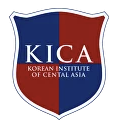Korean Institute of Central Asia (KICA)
Overview
The Korean Institute of Central Asia (KICA) is an academic institution focusing on Central Asian studies. It was established in 2000 and is located in Bishkek, the capital of Kyrgyzstan. Supported by the Korean government, KICA aims to strengthen academic exchanges and cooperation between Korea and Central Asian countries and promote the socio-economic development of the region. The institute provides policymakers, scholars and businesses with the latest research results and practical suggestions on Central Asia through multidisciplinary research projects, academic conferences and training activities.
Mission and Vision
KICA's mission is to enhance mutual understanding and cooperation between Korea and Central Asian countries through high-level research and education. The institute is committed to becoming a leading institution for Central Asian studies and providing intellectual support for the socio-economic development of Central Asian countries. KICA's vision is to become an internationally renowned Central Asian research platform and provide valuable references and suggestions to the global academic community and policymakers.
Organizational Structure
KICA consists of several departments and research centers, each with a clear research direction and mission:
Administrative Management Department: Responsible for the daily management and operation of the institute.
Central Asian History and Culture Research Center: Studies the culture and history of the Central Asian region and explores its impact on modern Central Asian society.
Economic and Social Development Research Center: Studies the economic development, social policies and regional cooperation of Central Asian countries.
Politics and International Relations Research Center: Studies the political system, foreign policy and international relations of Central Asian countries.
Environment and Sustainable Development Research Center: Studies environmental protection and sustainable development issues in Central Asia.
Education and Training Center: Provides training and educational programs for scholars, officials and enterprises in Central Asian countries.
Main Research Fields
KICA's research fields are wide-ranging, covering many aspects of the Central Asian region:
History and Culture: Studies the culture and history of the Central Asian region and explores its impact on modern Central Asian society.
Economic and Social Development: Studies the economic development, social policies and regional cooperation of Central Asian countries.
Politics and International Relations: Studies the political system, foreign policy and international relations of Central Asian countries.
Environment and Sustainable Development: Studies environmental protection and sustainable development issues in Central Asia.
Education and Training: Provide training and education programs for scholars, officials and enterprises in Central Asian countries.
Projects and Activities
KICA promotes academic exchanges and cooperation in various ways:
Academic Conferences and Seminars: Regularly hold international academic conferences and seminars, invite domestic and foreign scholars and experts to participate, and share the latest research results.
Research Projects: Carry out a number of research projects covering the economy, politics, culture, environment and other fields in Central Asia.
Training and Education: Provide training and education programs for scholars, officials and enterprises in Central Asian countries to enhance their professional capabilities and management level.
Publications: Regularly publish academic journals, research reports and books to provide valuable research results for academia and policymakers.
Cooperation and Exchange
KICA has established cooperative relations with many international research institutions and universities, including but not limited to:
The Academy of Korean Studies (AKS): Cooperate with the Academy of Korean Studies to carry out cultural research projects in Central Asia 1.
Korea Advanced Institute of Science and Technology (KAIST): Cooperate with KAIST to carry out scientific and technological innovation and sustainable development research projects in Central Asia 2.
Central Asia Regional Economic Cooperation Institute (CAREC): Cooperate with CAREC to carry out research projects on economic and social development in Central Asia 10.
Other international research institutions: Cooperate with many research institutions in Europe, America and Asia to carry out multidisciplinary research projects in Central Asia.
Results and Impacts
KICA's research results and activities have had a positive impact on the socio-economic development of Central Asia:
Policy recommendations: Provide scientific policy recommendations to policymakers in Central Asian countries to help them formulate more effective policy measures.
Academic contributions: Publish a large number of high-quality research papers and reports in the international academic community, which has improved the academic level of Central Asian studies.
Talent training: Through training and education programs, a group of high-quality academic and professional talents have been trained for Central Asian countries.
-

Kyrgyz Russian Slavic University
-

Kyrgyz State Technical University
-

American University of Central Asia
-
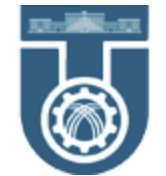
Osh Technological University named after M. Adyshev
-
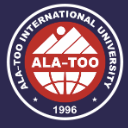
Ala-Too International University
-
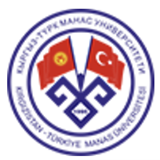
Kyrgyzstan-Türkiye Manas University
-
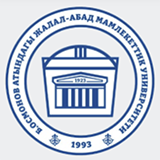
Jalal-Abad State University named after B. Osmonov
-

Kyrgyz National Agrarian University
-
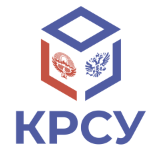
Kyrgyz-Russian Slavic University named after the first President of the Russian Federation B.N. Yeltsin
-

Kyrgyz State Medical Academy
-

Mesoamerican University
-

Istmo University
-

Mariano Galvez University of Guatemala
-

Regional University of Guatemala
-

Galileo University
-

Francisco Marroquín University
-

Rafael Landívar University
-

University of the Valley of Guatemala
-

University of San Carlos of Guatemala
-

Technological Institute of Tlaxcala Plateau
-

Golfo University
-

Technological University of South Sonora
-

Technological University of Huejotzingo
-

Tizimín Institute of Technology
-

Chilpancingo Institute of Technology

